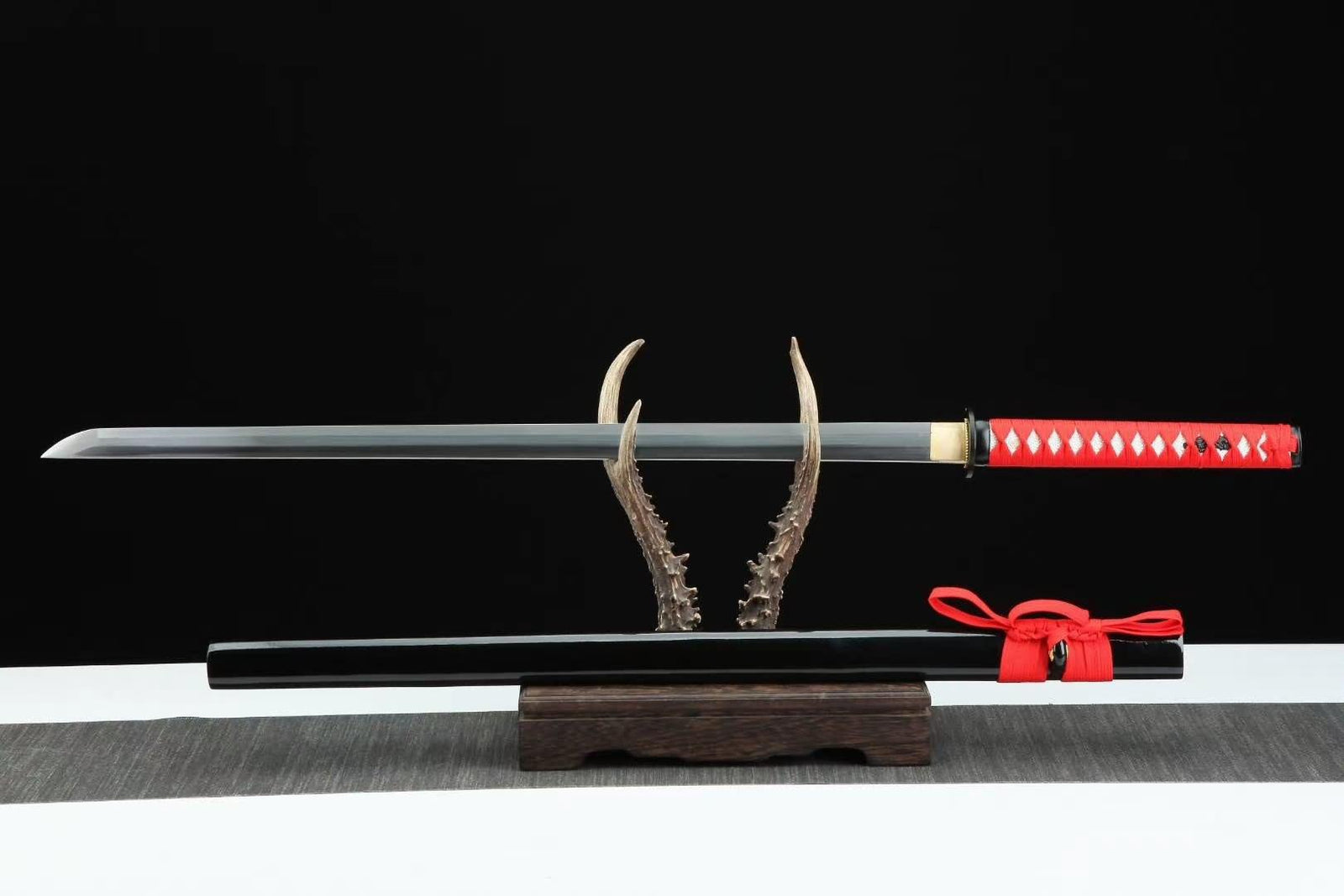Your Cart is Empty
FREE SHIPPING FOR USA

Damascus steel has long been praised for its strength and beauty—but to ancient warrior cultures, a Damascus blade was more than just a weapon. It was a symbol of power, honor, spiritual connection, and eternal legacy.
Across centuries and civilizations, Damascus blades have carried cultural meaning far beyond combat. In this article, we dive into the deep symbolic role these patterned steel weapons played in warrior traditions from Asia to the Middle East to medieval Europe.
Before we explore the symbolism, it helps to understand what Damascus steel actually is.
Damascus steel refers to steel with a wavy, patterned appearance created through forge welding of different iron and steel types.
Historically, some of the earliest and most prized versions were made using Wootz steel from India and Sri Lanka.
The blade’s striking patterns were not just cosmetic—they hinted at complex metallurgy, strength, and craftsmanship.
Today, modern Damascus is typically created through pattern welding, a technique inspired by those ancient processes.
The name “Damascus steel” itself stems from the Syrian city of Damascus, a hub of trade and blade-making between the 3rd and 17th centuries. For Muslim warriors during the Islamic Golden Age, a Damascus blade represented:
Divine craftsmanship – A weapon forged with knowledge passed from earlier civilizations.
Status and nobility – Only wealthy warriors or royalty could afford such blades.
A blade for jihad – Not just in combat, but in spiritual struggle.
Swords were often named and passed down—the blade became part of the family legacy.
When Christian Crusaders encountered Damascus blades during their invasions of the Middle East, they were stunned:
"The Saracen sword could slice through a European blade cleanly," one knight wrote in the 12th century.
To the Crusaders, Damascus steel took on mythic properties:
It represented the mysterious East
It symbolized divine protection for Muslim warriors
It became a feared icon of military superiority
Eventually, many knights sought Damascus-style swords of their own—blades that carried not only strength, but spiritual power.
While traditional Damascus steel wasn't native to Japan, the symbolism of patterned blades mirrors that of katana craftsmanship.
In Japanese warrior culture:
The blade represented the samurai’s soul
Patterns in the steel reflected balance between beauty and destruction
Forging was a ritual—a spiritual process, not just a mechanical task
Some modern katana makers even fuse Damascus-style layering with Japanese steel to create hybrid blades, celebrating both traditions.
India is the birthplace of Wootz steel, the true ancient precursor to Damascus.
To the Rajput warriors, owning a Wootz-blade meant:
You held something divinely blessed
The blade would never break in battle
The pattern itself was a mark of authenticity and prestige
Many Wootz swords were adorned with symbols of Hindu gods, tigers, or elephants—each etched into the steel as a spiritual invocation.
Why did so many cultures care about the pattern in the steel?
It wasn’t just beauty—it was meaning.
🌊 Waves symbolized flowing energy, adaptability in battle
🔥 Fire-like swirls represented transformation and divine wrath
🧬 Ladder or twist patterns mirrored cosmic order, destiny, or DNA-like flow
These were sacred visual metaphors, passed from master smith to warrior.
Even today, people don’t just buy Damascus knives for their sharpness.
They’re drawn to:
The story behind the steel
The feeling of owning something ancient
The symbolism of strength, precision, and heritage
At Jun Knives, many of our customers tell us they chose a Damascus blade not just to cook with—but to connect with a deeper sense of craftsmanship, ritual, and meaning.
“It’s not just a knife. It’s a statement.”
To ancient and modern warriors alike, Damascus steel isn’t just metal—it’s meaning forged into matter.
From the Crusades to the kitchens of modern collectors, the symbolism of Damascus blades remains a lasting legacy of:
🧠 Knowledge passed down
🔥 Fire harnessed with purpose
🗡️ A blade that tells a story with every ripple
Today, the legacy of symbolic blades lives on—not just in museums or martial arts dojos, but in the hands of collectors and modern craftsmen who respect the warrior ethos. At Jun Knives, our Damascus swords and katanas are more than just blades—they're a fusion of ancient tradition and modern precision. Hand-forged with layered Damascus steel, each piece showcases the iconic ripple patterns that symbolize strength, resilience, and artistry.
Whether it's a curved Damascus katana inspired by centuries of samurai craftsmanship or a straight-edged battle-ready sword echoing medieval valor, our blades honor the fighting spirit embedded in warrior cultures around the world. They're designed not only for performance and durability, but also to reflect the timeless values of discipline, mastery, and legacy—the very values carried by warriors who wielded blades before us.